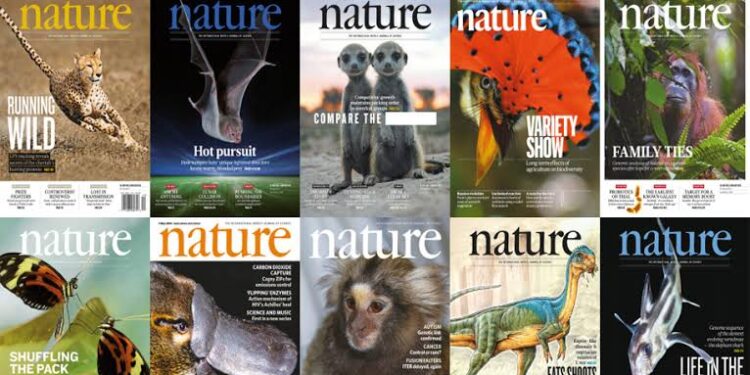https://techstory.in/federal-scientists ... er-nature/
Federal Scientists Lose Access to Prestigious Journals as Agencies Cut Ties with Springer Nature
Funding concerns and political ideology converge in decisions affecting access to world-class scientific literature
by Harikrishnan A
July 3, 2025

Scientists across several major U.S. federal agencies are losing access to Springer Nature’s suite of highly respected journals including Nature, one of the world’s most prestigious scientific publications. The shift, confirmed in a report by Nature’s independent news team, has raised alarm among researchers who rely on these journals to stay informed, conduct groundbreaking research, and publish peer-reviewed findings.
Springer Nature’s extensive portfolio includes not only Nature but also Scientific American and dozens of journals covering disciplines from climate science to genomics. These resources are essential for government scientists working on everything from pandemic preparedness to space exploration. However, a growing list of federal agencies, including NASA, the U.S. Department of Agriculture (USDA), and the Department of Energy (DOE), are pulling the plug on their subscriptions.
Budgetary Cuts and Subscription Cancellations
According to USDA officials, the department decided to cancel all contracts with Springer Nature due to the high cost of subscriptions, arguing that it was not a responsible use of taxpayer dollars. NASA has followed suit, confirming its scientists would also no longer have institutional access. Public federal spending records show that the DOE has likewise ended its financial relationship with the publisher.
These cancellations reflect a broader trend of tightening federal research budgets. Scientific journals can cost institutions tens or even hundreds of thousands of dollars annually—an expense some agencies are now questioning. But the concern over budget alone does not tell the full story.
NIH Access Revoked Amid Mixed Signals
Initially, it appeared that the National Institutes of Health (NIH)—the nation’s largest biomedical research funder—would maintain its access to Springer Nature titles. But shortly after inquiries from Nature‘s news division, a spokesperson from the Department of Health and Human Services (HHS), which oversees the NIH, clarified that all Springer Nature contracts were either terminated or inactive.
This abrupt shift marked a significant development. HHS did not just cite cost as a reason, but suggested that the agency was unwilling to support what it described as underused or non-essential scientific content. This reasoning has raised eyebrows, particularly among researchers who depend on these journals for high-impact work and up-to-date scientific developments.
A Changing Climate at HHS
The move aligns with the broader views of HHS Secretary Robert F. Kennedy Jr., a controversial figure known for his skepticism of mainstream science and medicine. Kennedy has openly criticized leading scientific and medical journals, expressing distrust in their editorial integrity and accusing them of being biased toward pharmaceutical interests.
In recent public comments, Kennedy questioned whether federal scientists should continue publishing in mainstream journals like The Lancet, JAMA, and The New England Journal of Medicine. He has suggested the possibility of developing government-controlled alternatives to these journals. While these ideas have not materialized into formal policy, they reflect a shift in how scientific authority is being evaluated at the federal level.
Scientific Community Voices Concern
For many federal researchers, the decision to cut ties with Springer Nature is not just about dollars and cents—it’s about access to knowledge. Losing institutional access to premier journals hampers their ability to stay abreast of new discoveries, collaborate across institutions, and publish in high-visibility platforms.
One NIH employee, speaking to Nature on condition of anonymity, described the move as a serious blow to scientific freedom. Without these journals, some researchers worry they are being cut off from the very ecosystem that enables progress in their fields. Others fear that decisions about what science is worth supporting are increasingly being shaped by ideology rather than evidence or professional need.
A Crossroads for U.S. Science Policy
The mass cancellation of Springer Nature subscriptions appears to reflect more than just financial restraint. It suggests a growing tension between scientific institutions and political leadership—particularly when that leadership casts doubt on the legitimacy of established research outlets.
Critics argue that conflating cost concerns with ideological judgments may damage the scientific process, especially if researchers are discouraged from engaging with widely respected journals. While no formal restrictions on publishing have been announced, the atmosphere of skepticism and distrust could influence how federal scientists approach their work going forward.
This episode also raises broader questions about the role of peer-reviewed science in public policy. In areas like public health, climate change, and technology development, access to credible research is vital. If scientists are expected to operate without the resources and platforms that have traditionally supported their work, the government’s ability to innovate and respond to emerging challenges could be compromised.







